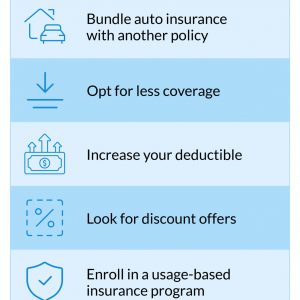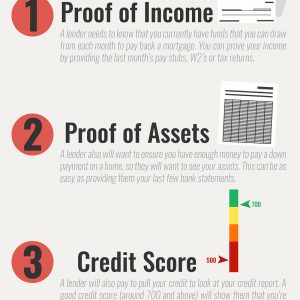“Get the most out of your taxes with Tax Credits!”
Introduction
Tax credits are a form of government assistance that can help reduce the amount of taxes you owe. They are available to individuals, families, and businesses, and can be used to offset the cost of taxes. Tax credits can be used to reduce the amount of taxes you owe, or to increase the amount of your refund. Tax credits can be used to help pay for education, childcare, and other expenses. They can also be used to help lower your overall tax burden. Tax credits can be a great way to save money and reduce your tax burden.
Exploring the Different Types of Tax Credits Available to Taxpayers
Tax credits are a form of tax relief that can be used to reduce the amount of tax owed by a taxpayer. Tax credits are available in a variety of forms, each of which can provide significant savings for taxpayers.
The Earned Income Tax Credit (EITC) is a refundable tax credit for low- and moderate-income working individuals and families. The amount of the credit is based on the taxpayer’s income and number of qualifying children. The EITC can reduce the amount of taxes owed and may even result in a refund.
The Child Tax Credit is a nonrefundable credit for taxpayers with qualifying children. The amount of the credit is based on the taxpayer’s income and the number of qualifying children. The credit can reduce the amount of taxes owed and may even result in a refund.
The Child and Dependent Care Credit is a nonrefundable credit for taxpayers who pay for the care of a qualifying child or dependent. The amount of the credit is based on the amount of care expenses paid and the taxpayer’s income. The credit can reduce the amount of taxes owed and may even result in a refund.
The American Opportunity Tax Credit is a partially refundable credit for taxpayers who are paying for college tuition and related expenses. The amount of the credit is based on the amount of tuition and related expenses paid and the taxpayer’s income. The credit can reduce the amount of taxes owed and may even result in a refund.
The Retirement Savings Contributions Credit is a nonrefundable credit for taxpayers who make contributions to a qualified retirement plan. The amount of the credit is based on the amount of contributions made and the taxpayer’s income. The credit can reduce the amount of taxes owed and may even result in a refund.
The Adoption Credit is a nonrefundable credit for taxpayers who adopt a child. The amount of the credit is based on the amount of adoption expenses paid and the taxpayer’s income. The credit can reduce the amount of taxes owed and may even result in a refund.
Tax credits can provide significant savings for taxpayers. It is important for taxpayers to understand the different types of tax credits available and how they can be used to reduce their tax liability.
How to Maximize Your Tax Credits to Reduce Your Tax Liability
Tax credits are a great way to reduce your tax liability and maximize your tax savings. Tax credits are a dollar-for-dollar reduction of your tax liability, meaning that for every dollar of tax credit you claim, you reduce your tax liability by one dollar.
The first step to maximizing your tax credits is to understand which credits are available to you. There are a variety of tax credits available, including the Earned Income Tax Credit, the Child Tax Credit, the American Opportunity Tax Credit, and the Lifetime Learning Credit. Each of these credits has different eligibility requirements, so it is important to understand which credits you qualify for.
Once you have identified the credits you are eligible for, you should calculate the amount of each credit you can claim. This can be done by using the IRS’s online tax calculator or by consulting a tax professional.
The next step is to make sure you are taking advantage of all the credits you are eligible for. This means ensuring that you are claiming the full amount of each credit you are eligible for. For example, if you are eligible for the Earned Income Tax Credit, make sure you are claiming the full amount of the credit.
Finally, you should make sure you are taking advantage of any other tax savings opportunities available to you. This could include contributing to a retirement account, such as a 401(k) or IRA, or taking advantage of deductions for charitable donations.
By understanding which credits you are eligible for, calculating the amount of each credit you can claim, and taking advantage of other tax savings opportunities, you can maximize your tax credits and reduce your tax liability.
Understanding the Eligibility Requirements for Tax Credits
Tax credits are a form of financial assistance that can help reduce the amount of taxes owed. Eligibility requirements for tax credits vary depending on the type of credit and the individual’s circumstances. Generally, tax credits are available to individuals and businesses that meet certain criteria.
Individuals may be eligible for tax credits if they meet certain income requirements. For example, the Earned Income Tax Credit is available to individuals who have earned income from employment or self-employment. The amount of the credit is based on the individual’s income and filing status.
In addition to income requirements, individuals may also need to meet other criteria to qualify for certain tax credits. For example, the Child Tax Credit is available to individuals who have a qualifying child. To qualify, the child must be under the age of 17, be a U.S. citizen or resident alien, and be claimed as a dependent on the individual’s tax return.
Businesses may also be eligible for certain tax credits. For example, the Research and Development Tax Credit is available to businesses that conduct research and development activities. To qualify, businesses must have incurred qualified research and development expenses during the tax year.
In addition to meeting the eligibility requirements for a particular tax credit, individuals and businesses must also meet certain filing requirements. For example, individuals must file a tax return to claim the Earned Income Tax Credit, and businesses must file a tax return to claim the Research and Development Tax Credit.
Tax credits can provide significant financial assistance to individuals and businesses. To take advantage of these credits, it is important to understand the eligibility requirements and filing requirements for each credit.
The Pros and Cons of Claiming Tax Credits
Claiming tax credits can be a great way to reduce the amount of taxes you owe, but there are both pros and cons to consider before doing so.
Pros
The primary benefit of claiming tax credits is that they can reduce the amount of taxes you owe. Depending on the type of credit, you may be able to reduce your tax bill by a significant amount. For example, the Earned Income Tax Credit can reduce your taxes by up to $6,660.
Tax credits can also be used to offset any taxes you owe, meaning you can use them to pay your taxes in full. This can be especially helpful if you don’t have the money to pay your taxes in full.
Finally, some tax credits are refundable, meaning you can receive a refund even if you don’t owe any taxes. This can be a great way to get some extra money back from the government.
Cons
Claiming tax credits can be complicated and time-consuming. You may need to provide additional documentation to prove your eligibility for the credit, and you may need to fill out additional forms.
In addition, some tax credits are non-refundable, meaning you can only use them to reduce the amount of taxes you owe. This means that if you don’t owe any taxes, you won’t be able to get any money back from the government.
Finally, some tax credits have income limits, meaning you may not be eligible for the credit if your income is too high. This can be especially frustrating if you’ve already done the work to claim the credit, only to find out you’re not eligible.
In conclusion, claiming tax credits can be a great way to reduce the amount of taxes you owe, but there are both pros and cons to consider before doing so. It’s important to weigh the pros and cons carefully before deciding whether or not to claim a tax credit.
Navigating the Complexities of Tax Credits for Small Business Owners
Small business owners face a variety of complex tax issues, including navigating the complexities of tax credits. Tax credits are a valuable tool for reducing a business’s tax liability, but understanding how to take advantage of them can be a challenge.
Tax credits are a dollar-for-dollar reduction in the amount of taxes owed. They are different from deductions, which reduce the amount of income subject to taxation. Tax credits are generally more beneficial than deductions because they reduce the amount of taxes owed directly.
There are a variety of tax credits available to small business owners. The most common are the general business credit, the research and development credit, the work opportunity credit, and the earned income credit. Each of these credits has its own set of rules and requirements, so it is important to understand the specifics of each one.
The general business credit is a broad credit that can be used to offset taxes owed on income from any business activity. It is available to businesses of all sizes, but the amount of the credit is limited to the amount of taxes owed.
The research and development credit is available to businesses that invest in research and development activities. It is designed to encourage businesses to invest in research and development activities that will benefit the economy. The credit is based on the amount of money spent on research and development activities.
The work opportunity credit is available to businesses that hire certain types of employees, such as veterans, ex-felons, and individuals from certain disadvantaged backgrounds. The credit is based on the wages paid to the employee.
The earned income credit is available to low-income individuals who are self-employed or who work for a small business. The credit is based on the amount of income earned.
Navigating the complexities of tax credits can be a daunting task for small business owners. It is important to understand the specifics of each credit and to consult with a tax professional to ensure that the credits are being used correctly. Taking advantage of tax credits can be a valuable tool for reducing a business’s tax liability and can help small business owners maximize their profits.
Conclusion
In conclusion, tax credits are an important tool for reducing the tax burden on individuals and businesses. They can help to reduce the amount of taxes owed, and can be used to incentivize certain activities or investments. Tax credits can be a great way to help individuals and businesses save money, and should be taken advantage of whenever possible.





